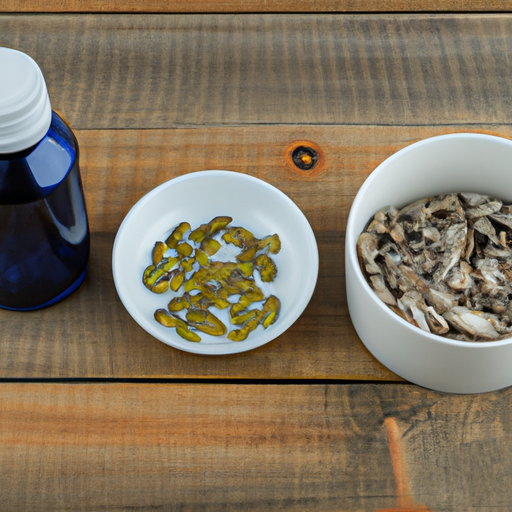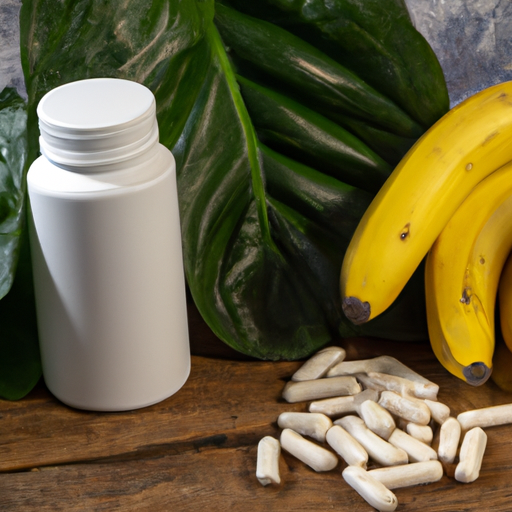
How to Use Zinc for Better Recovery and Immune Support
Are you looking to boost your immune health and speed up your post-workout recovery? Believe it or not, zinc might be that unsung hero in your nutritional arsenal. In this article, we will delve into the remarkable zinc benefits that favor both immune health and post-workout recovery. So, grab a comfy seat, and let's dig into the marvelous, yet often underestimated, world of zinc.
Understanding Zinc and Its Role
First things first—what exactly is zinc? Zinc is an essential trace mineral, basically, it means you need it in small amounts but can't live without it! It's found all over your cells, aiding your body in a range of functions including protein synthesis, wound healing, DNA production, and, you guessed it, immune support!
Zinc Benefits for Immune Health
- Keeps the Immune System Sharp: Zinc is vital for the normal development and function of cells that mediate innate immunity, such as neutrophils and natural killer cells. This means it acts like a gym trainer for your immune system!
- Acts as an Antioxidant: Aiding in combating oxidative stress, zinc helps protect cells from harmful radicals. It's like a bodyguard against diseases lurking around every corner!
- Reduces Inflammation: Zinc plays a role in modulating the immune system's inflammatory response, providing a balance that ensures your immune system does not overreact.
Post-Workout Recovery: Zinc's Secret Powers
- Muscle Repair and Growth: Zinc contributes to protein synthesis and cell growth, key factors in muscle repair post-exercise. So, if you're building those biceps, zinc might just be your new gym buddy!
- Enhances Recovery from Exhaustion: A lack of zinc can lead to fatigue. By supplementing your regime with adequate zinc, you ensure that fatigue doesn’t stand a chance in hindering your recovery.
- Hormonal Balance: Zinc is essential for maintaining a healthy balance of hormone levels, including testosterone, which plays a big role in muscle growth and recovery.
Sources of Zinc: What Should You Eat?
While it would be great if we could pack all these zinc benefits into a superhero costume, let's start with your diet. Food is your first stop for topping up those zinc levels. Sources of zinc include:
- Shellfish: Oysters hold the title for being the zinc champion. But crab and lobster come in as tasty backups.
- Seeds and Nuts: Pumpkin seeds, cashews, and almonds are zinc-rich options that also add that perfect crunch to your meals.
- Red Meat and Poultry: Beef, lamb, and chicken not only supply you with precious proteins but a substantial amount of zinc too.
- Dairy Products: Cheese and milk can provide you with a modest amount of zinc, helping in a delightful yet cheesy way.
Supplementing with Zinc: What You Need to Know
Though you'd like to high-five your diet as the number one contestant, sometimes it doesn’t cut it. This is where supplements enter the scene. But before you go all in, remember:
- Consult a Professional: It’s essential to discuss with a healthcare provider when considering supplementation.
- Dosage Matters: More isn’t always better. A typical dose stays in the range of 8-11 mg for adults, but your specific needs may vary.
- Avoid Overdosage: Too much zinc can lead to nausea, appetite loss, and even a weakened immune system! So, stick with recommended doses.
When Should You Take Zinc?
Timing your zinc intake in relation to your workouts and meals can optimize its benefits.
- Post-Workout: Consider taking zinc after your workouts to aid in faster recovery and muscle repair.
- Evening Routine: Zinc at night can help in hormone synthesis and repair during sleep, a crucial time for recovery.
- With Meals: Taking zinc with a balanced meal ensures better absorption and reduces any stomach irritation.
Potential Side Effects of Zinc
It's always good to be cautious, even with something beneficial. Zinc uptake can have potential side effects if not taken appropriately.
- Digestive Issues: Nausea and upset stomach may arise if taken on an empty stomach or in high doses.
- Immune Disruption: In rare cases, overdosing on zinc can ironically compromise your immune system.
- Metallic Taste: Some people report a metallic taste after taking zinc supplements, a small but tasteful downside!
Combining Zinc with Other Nutrients
Like superheroes teaming up, combining zinc with other nutrients can enhance its effects. Consider these synergistic nutrient pair-ups:
- Vitamin C: Supports immune function, working hand-in-hand with zinc to stave off colds.
- Magnesium: These two minerals together support muscle function and recovery after intense workouts.
- Vitamin E: Works alongside zinc as an antioxidant to protect cells from damage and support overall recovery.
The Bottom Line on Zinc Benefits
Zinc undoubtedly plays a significant role in enhancing immune health and post-workout recovery. From keeping your immune cells battle-ready to aiding in muscle repair, zinc's contributions are plenty. The trick is in managing the right intake levels through diet and thoughtful supplementation.
So, next time you feel a tickle in your throat or those post-lifting soreness pangs, think about reaching for a zinc-rich snack or discussing supplementation with a health professional. The benefits you'll harvest from this mighty mineral might surprise you!
